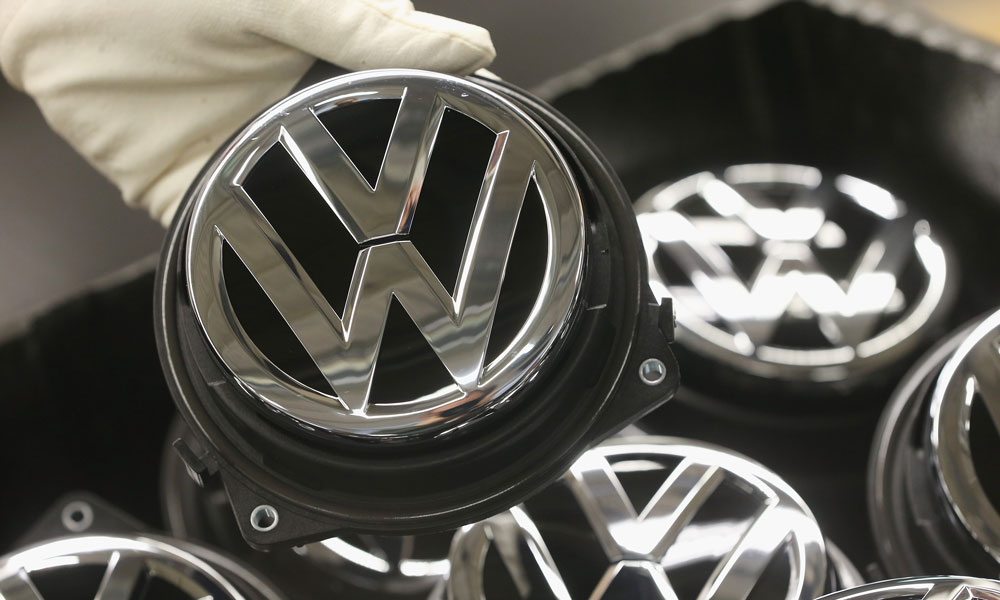
The Nonprofits That Caught Volkswagen Red-Handed
Revelations of corporate dishonesty have shaken the auto giant this month. Those revelations emerged thanks to the work of two environmental advocacy groups.
The European Federation for Transport and Environment (T&E) caught the world’s largest auto manufacturer in a systemic lie, one that will cost Volkswagen billions.
The advocacy organization, which promotes standards for environmentally conscious, sustainable transportation, worked with the International Council on Clean Transportation (ICCT) and researchers at West Virginia University to crack open a major corporate scandal this month involving Volkswagen’s use of “defeat device” software during testing to hide the high levels of emissions that its diesel cars produce. And the result of their research in recent days has been staggering.
On Friday, the Environmental Protection Agency (EPA), responding to a tip from ICCT, ordered the company to recall nearly half a million vehicles over violations of the Clean Air Act. After Volkswagen received letters from the agency threatening to withhold approval of 2016 VW and Audi diesel vehicles, top execs admitted to using software to falsify the results of laboratory emissions tests. The California Environmental Protection Agency, which has more rigorous standards than the federal EPA, also took action, through its Air Resources Board (CARB).
On Monday, shock waves from the carmaker’s fraud led to a huge sell-off of Volkswagen stock.
On Tuesday, the scope of the scandal became clear: After an internal audit, Volkswagen revealed that 11 million of its diesel cars sold around the world had software installed to enable the vehicles to pass emissions tests. The defeat device cut emissions during testing, making the engines appear to be producing an acceptable level, when in reality they spewed up to 40 times more pollution than U.S. regulations permit. The company announced that it has set aside $7.3 billion to help pay for the necessary fixes.
On Wednesday, the company’s CEO, Martin Winterkorn, stepped down. “Volkswagen needs a fresh start also in terms of personnel. I am clearing the way for this fresh start with my resignation,” Winterkorn said in a statement.
T&E, in a report, says that Volkswagen may not be the only emissions offender. BMWs and vehicles from General Motors’ Opel, among others, also showed marked differences between testing done in the lab and emissions released when the cars are on the road, according to tests performed by ICCT.
“We call it the tip of the iceberg,” T&E Director Jos Dings told the New York Times. “We don’t think this will be limited to Volkswagen. If you look at the testing numbers for the other manufacturers, they are just as bad.”
T&E’s clean-vehicles manager, Greg Archer, traced the problem to weak government oversight in Europe, where automakers are allowed to select their own emissions testers from the private sector. In the United States, a percentage of new cars are retested in government labs.
“In Europe, carmakers pay certified testing organizations to perform tests in the carmakers’ own laboratories. The tests are overseen by National Type Approval Authorities (in the UK, the Vehicle Certification Agency),” Archer explained in a news article. “But carmakers ‘shop’ for the best deal from agencies across Europe and directly pay for their services. The job of the engineer overseeing the test is ultimately dependent on the next contract from the carmaker.”
ICCT, meanwhile, emphasized that enforcement of regulations is key.
“The huge discrepancy in real-world performance among these vehicles makes it clear that without vigilant enforcement of air-pollution laws, companies that comply with the standards will be placed at a competitive disadvantage,” ICCT’s U.S. program lead, John German, said in a news release. “If left unchecked, that could undermine the whole regulatory framework. That’s why the actions by EPA and CARB are so important.”
(Sean Gallup/Getty Images)






Comments